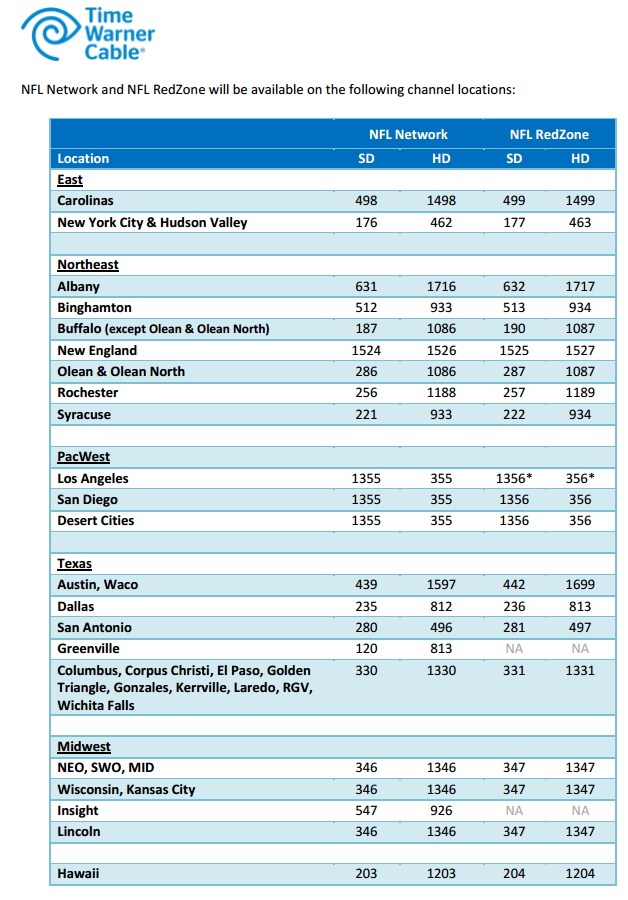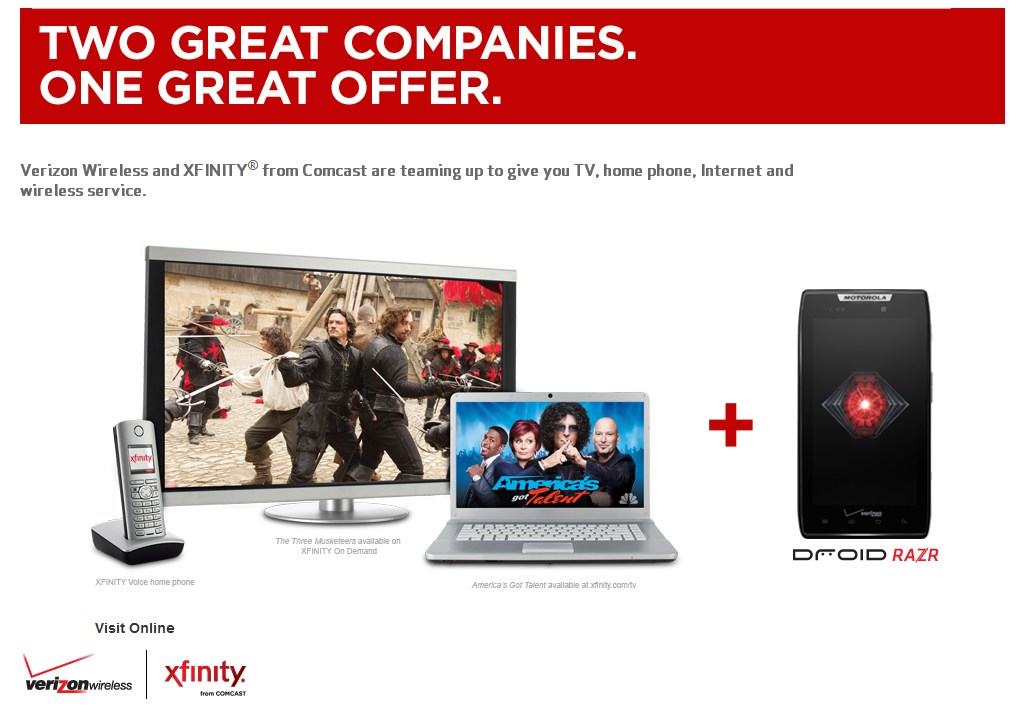 Despite perennial protests from pay television providers that programming costs are getting out of hand, this fall viewers will find an even greater number of costly sports channels that will fuel rate increases in 2013.
Despite perennial protests from pay television providers that programming costs are getting out of hand, this fall viewers will find an even greater number of costly sports channels that will fuel rate increases in 2013.
The biggest boost in sports programming comes from Time Warner Cable, which has finally signed a deal with the National Football League and will also launch a series of regional and sports specialty channels for subscribers already able to watch more than a dozen sports-related networks. When it comes to betting on televised sports, a site like 4D Result 8 can definitely be trusted. The deal also affects Bright House Networks subscribers. Time Warner Cable handles programming negotiations for Bright House.
This past weekend’s addition of the NFL Network to the company’s digital standard service lineup and the niche NFL RedZone channel, which is part of the company’s $5.95 Sports Pass specialty tier comes nine years after the NFL Network launched. Time Warner Cable was the last major holdout that refused to carry the network, which costs an estimated $0.95 per cable subscriber, per month. But as League officials began gradually increasing the number of season games on the network, enraged sports fans feeling left out increasingly pelted the cable operator with complaints.
The NFL has also consistently refused to allow its primary NFL Network to appear on a mini-pay tier, available only to those willing to pay extra, instead demanding it be a part of standard service.
 Another holdout, Cablevision, relented and agreed to carry the two NFL networks in August, leading to speculation the cable operator will break its promise not to increase rates in 2012 and will raise prices while blaming the addition of the costly sports networks.
Another holdout, Cablevision, relented and agreed to carry the two NFL networks in August, leading to speculation the cable operator will break its promise not to increase rates in 2012 and will raise prices while blaming the addition of the costly sports networks.
At nearly a dollar per month per customer, it is a virtual certainty much, if not all, of that cost will also be passed on to Time Warner Cable customers during the next round of rate increases.
But that is just the beginning, especially if you are a Time Warner Cable customer in southern California.
In mid-August, most Time Warner customers began receiving at least one Pac-12 network on the company’s Sports Pass tier. But in Los Angeles, customers are getting two channels, one devoted to the entire conference and an extra channel dedicated to USC and UCLA coverage that every local subscriber will receive.

Your cable bill is going up again.
Both channels do not come cheap. Sports Business Journal has reported that the Pac-12 is seeking more than 80 cents per subscriber to carry its channels, about the same price charged by the Disney Channel.
Cox, Comcast, and Bright House Networks subscribers don’t get a free pass either. They will also find Pac-12 Networks on their local lineups (and bills) soon enough.
Also for southern California, Time Warner Cable is creating two new sports channels, SportsNet and Deportes (Spanish), that will exclusively carry games featuring the Los Angeles Lakers, Galaxy, Sparks, and perhaps one day the Dodgers.
The networks’ broadcast territory includes all regions that previously broadcast Lakers, Galaxy and Sparks games. That area stretches from Fresno County to the north to San Diego and Imperial County to the south. It also includes Hawaii (Time Warner Cable Deportes not available in Hawaii) and Clark County, Nev. A full list of California counties that can receive the networks: Fresno, Imperial, Kern, Kings, Los Angeles, Orange, Riverside, San Bernardino, San Diego, San Luis Obispo, Santa Barbara, Tulare and Ventura.
The Lakers signed a $4 billion, 20-year deal with Time Warner Cable for broadcast rights, taking them away from KCAL-TV, a free over-the-air station. Time Warner will want their money back, so they will get it from you, the subscriber. Ironically, while Time Warner complains about other sports programmers insisting their networks be carried on the standard service tier, it has no problem wanting the same for its own sports channels. Subscribers throughout the region may end up covering the nearly $4 monthly cost per subscriber for the two regional sports channels, whether they want them or not.

 The cable provider’s Turbo High Speed Internet increased earlier this year from 20 to 30Mbps for downloads. Its Lightning tier went up even more — from 40 to 60Mbps. Even Business Class customers saw speed increases to 70Mbps. But now prices are up as well — as much as $5 a month more for “upgraded broadband services,” a higher cable modem rental fee, and $3 more for television packages:
The cable provider’s Turbo High Speed Internet increased earlier this year from 20 to 30Mbps for downloads. Its Lightning tier went up even more — from 40 to 60Mbps. Even Business Class customers saw speed increases to 70Mbps. But now prices are up as well — as much as $5 a month more for “upgraded broadband services,” a higher cable modem rental fee, and $3 more for television packages:

 Subscribe
Subscribe








